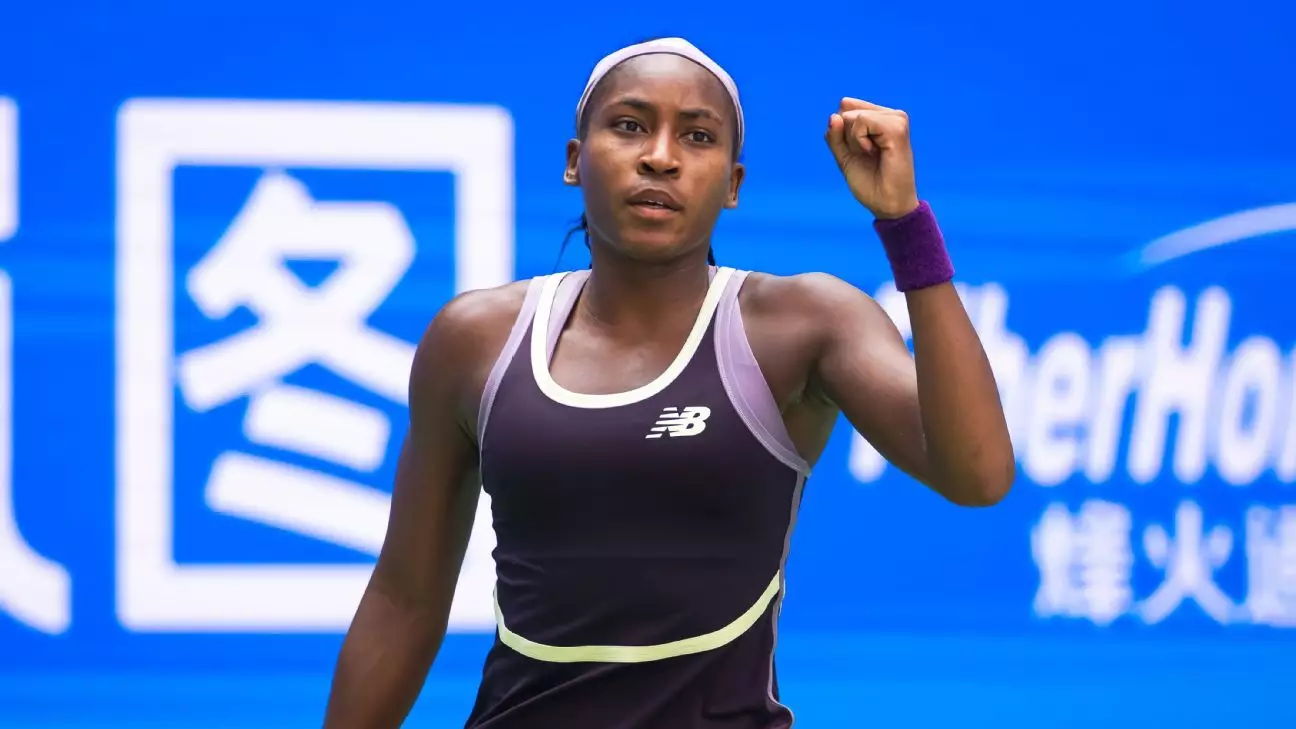The decision to host the Women’s Tennis Association (WTA) Finals in Saudi Arabia marks a significant shift in the landscape of women’s sports within the kingdom. Scheduled to take place from 2024 to 2026 in Riyadh, this event replaces last year’s venue in Cancun, Mexico, setting the stage for what could be a transformative period for gender equality and LGBTQ rights in the country. Coco Gauff, a rising star in women’s tennis and former US Open champion, has been vocal about her thoughts on the matter, weighing both the potential for progress and the existing challenges.
Hosting such a prestigious competition could indeed serve as a catalyst for change, as Gauff suggests. It provides an opportunity for international attention on issues regarding women’s rights and LGBTQ protections in Saudi Arabia. With noted figures in tennis, such as Chris Evert and Martina Navratilova, expressing concerns over this move, it’s clear that the ramifications extend beyond just sports. Their criticisms highlight a broader skepticism regarding whether the WTA’s presence will genuinely influence sociocultural shifts within the conservative society.
Saudi Arabia has been accused of employing “sportswashing” tactics, utilizing major sporting events to distract from its troubling human rights record. The kingdom has heavily invested in high-profile sports initiatives, aiming to position itself as a global player on the athletic stage. Despite these financial investments, critics—including women’s rights activists and members of the LGBTQ community—argue that the country fails to address its controversial policies and practices adequately. These assertions are particularly salient when considering the societal frameworks that govern personal freedoms within the kingdom.
Gauff’s understanding of these complexities reflects a nuanced perspective that many athletes must grapple with. “I would be lying to you if I said I had no reservations,” she stated, acknowledging the heavy weight that comes with being a public figure in the face of global human rights challenges. Recognizing the potential implications, she has consistently advocated for a transparent program aimed at fostering real dialogue about these sensitive issues.
The pledge made by the WTA to support initiatives like the Future Stars program in Saudi Arabia raises hopes for tangible improvements in women’s sports participation. The ambitious objective of having one million players by 2030 casts a spotlight on the potential for societal change. Gauff’s belief that sports can open doors to broader conversations about equality and inclusion resonates powerfully in this context.
Engaging directly with local women, including influential figures like Princess Reema Bandar Al Saud, adds credibility to this initiative. The conversations held regarding LGBTQ rights and women’s issues indicate a commitment to understanding and potentially facilitating change. As athletes partake in these events, their presence may influence public perception and encourage the acceptance of diverse gender identities and orientations.
As the world’s attention turns to Riyadh, the coming years will serve as a critical test for the WTA and its athletes. The partnership between professional sports and social activism will be evaluated through the outcomes of these events and the initiatives they foster. Gauff’s frank assessment about returning to Saudi Arabia reinforces the notion that continual engagement should come with accountability. If athletes perceive little change or feel uncomfortable during their time in the kingdom, it may lead to questions about the integrity of the WTA’s involvement.
While hosting the WTA Finals in Saudi Arabia is a bold move, it is fraught with complexities. The duality of potential progress alongside existing systemic issues paints a complicated picture. Gauff’s reflections remind us that the world will be watching—not just to witness monumental tennis matches, but to see if real change will accompany the shifting sands of sport and society in Saudi Arabia. The hope for a more equitable future remains, but it requires active participation and meaningful dialogue to ensure that the global spotlight fosters real, lasting change.

